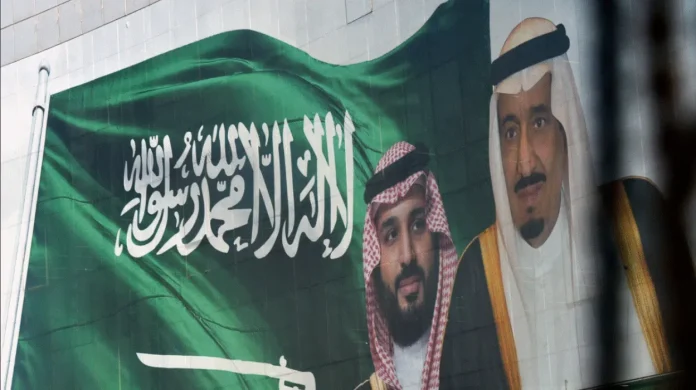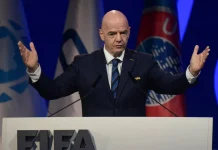The absence of democratic structures in Saudi Arabia raises serious doubts over whether this country can host the FIFA World Cup 2034. Hosting the World Cup, in which international public opinion is supposed to be reflected upon its host nation, calls for respect for basic universal rights. Saudi Arabia is known for the execution of high numbers of people with the death penalty, executing 196 people in 2022 alone. Among these is the mass execution of 81 men in a single day, which became one of the largest mass executions in recent history.
In a non-democratic system, where even public machinery is absent to claim and thereby protect the rights, there is the threat of reputational damage not only to FIFA but also to the cup it holds. Here are key reasons why this lack of democratic structures could render Saudi Arabia unfit to host this very important event:
Human Rights Concerns:
Saudi Arabia has been criticized from all sides for its human rights record, from freedom of speech, assembly, and the press to arbitrary arrests, suppression of political dissent, and the limited rights of women and minorities. Without democratic institutions to hold the government accountable for these actions, there are concerns about how locals and visitors will be treated during the World Cup. The high number of the implementation of the death penalty is synonymous with Saudi Arabia. Also, this was accompanied by mass executions in one event, for example, as it executed 81 men in just one day.
Freedom of Expression and the Press
In democratic countries, the media serve as a critical watchdog on whatever is happening in the government and also update the public on key issues, including those regarding large events like the World Cup. In Saudi Arabia, however, the government strictly regulates the media and eliminates alternative views. Journalists and journalists are persecuted if they report anything against the government. Freedom House places Saudi Arabia at 24 out of 100 on their freedom of the net ranking, which classifies it as “not free.” It evidences major barriers to digital access, content restriction, and user rights.
An inadequate free press implies that an important human rights debate, corruption concerns, or worker welfare about those constructing the World Cup infrastructures will be silenced. This again creates a shroud of obscurity where transparency becomes a concern due to a global event of this caliber meant to be full of open and accountable expressions.
Worker rights and conditions
Saudi Arabia has been criticized for the treatment of migrant workers, especially in construction and infrastructure development. Many of the workers have reported exploitation, such as poor working conditions, delayed wages, and unsafe environments. The absence of democratic institutions and labor rights enforcement worsens this problem because there is little redress for the workers when they are being mistreated. In 2022, the government arrested 15 people for online activities and sentenced them to between ten and 45 years in prison.
Due to more and more emphasis being placed by FIFA on ethical responsibility and labor rights, a country without democratic control over the standards of labor will not ensure that the treatment of its workers before the FIFA World Cup 2034 is fair and just, thus bringing in scandals and condemnation from other nations, therefore diminishing the very spirit of the tournament.
Public Participation in Limited Areas
Citizens of a democratic state are allowed to have a say in key decisions, such as large international events like the World Cup. In Saudi Arabia, with its strong central power and suppressed opposition, public participation in determining matters concerning the country’s foreign policies is almost nonexistent.
It never will justify the legitimacy in holding such a global show, the World Cup. In this regard, that gives room for denial of most people’s will and interests because there would not have been democratic ways of confirming the fact that such a doomsday event would indeed prove to be useful and in the interest of every citizen of Saudi.
Political Stability and Governance
Undemocratic institutions can also lead to political instability. In many cases, these regimes have powerful, centralized, authoritarian leaderships that change; therefore, any changes in leadership might quickly alter policies or priorities, which is not a threat directly to the FIFA World Cup 2034 but can affect long-term planning and infrastructure development of a country, making it unable to implement commitments made.
It also provides checks and balances, more policy continuity, and a predictable governance structure. The absence of such checks and balances in Saudi Arabia makes one worried over the long-term organizational stability of the tournament and whether the country will be able to stick to its promises.
International Rating and Sponsorship
In recent years, FIFA has faced pressure to ensure that host countries respect values such as inclusiveness, transparency, and respect for human rights. The risk of awarding the 2034 World Cup to a country with limited democratic institutions is alienating sponsors, partners, and fans who place a premium on ethical practices. International sponsors, especially those who are serious about human rights policies, will not want to sponsor an event hosted in a country that restricts civil liberties.
Lack of International Supervision
Hosting the World Cup globally requires an effective system of international monitoring that should include supervising the commitment of the host country toward human rights, transparency, and fair governance. Because Saudi Arabia lacks democratic institutions, it will face great challenges in demonstrating its compliance with international standards; therefore, FIFA and other international stakeholders will not find it easy to hold it accountable.
Conclusion
Undemocratic institutions in Saudi Arabia also constitute a serious ethical and technical issue that raises legitimate apprehensions about its viability for the FIFA World Cup 2034. A truly universal game, as the World Cup will insist, at least, upon regard to the individual’s rights, freedoms to speak, political security, as well as transparent mechanisms governing society, all being standards supported by democratic institutes. In case these structures are not there, Saudi Arabia will not be able to successfully host the event in a fair, open, and transparent way. This automatically makes the country unfit to host the tournament.












